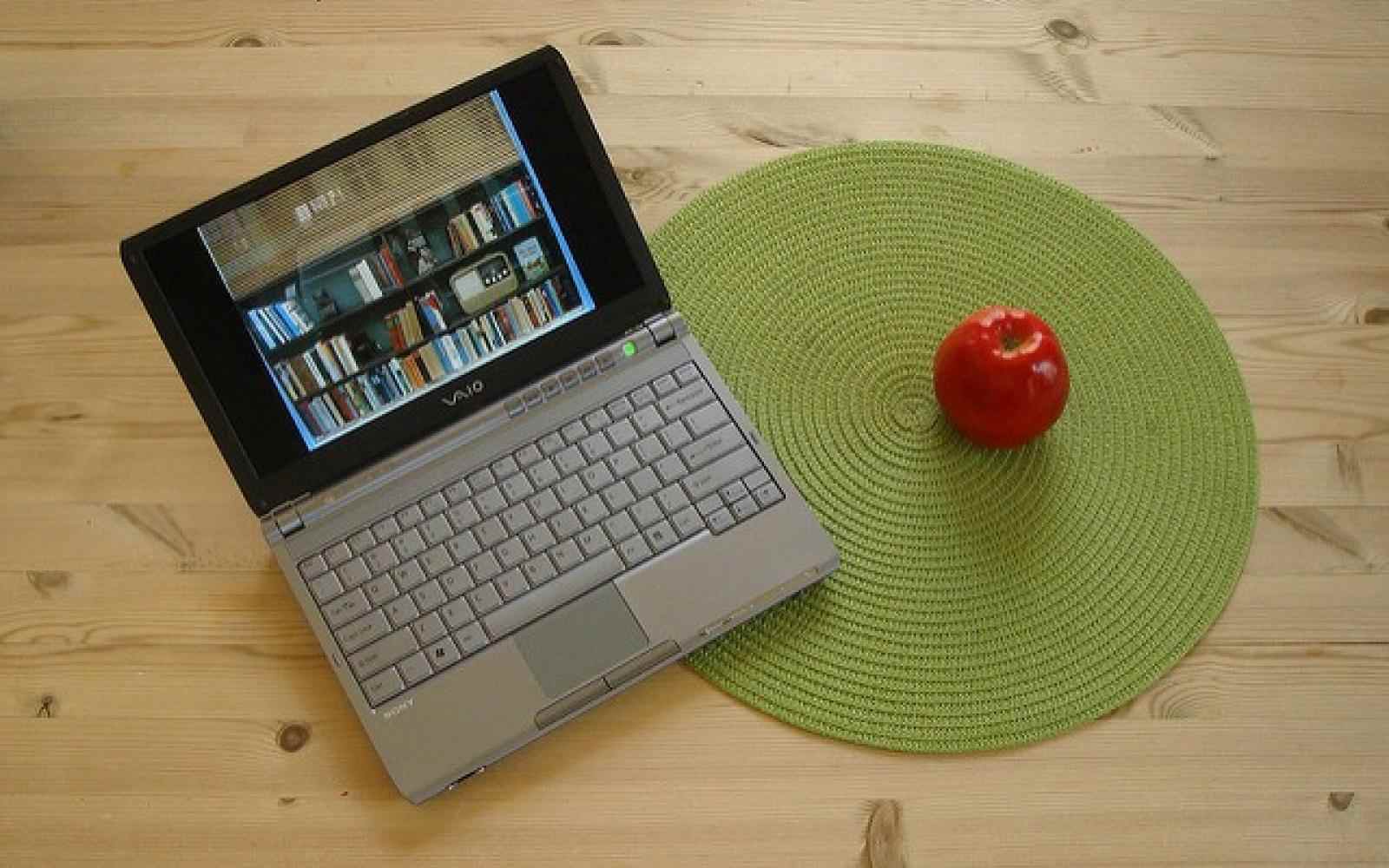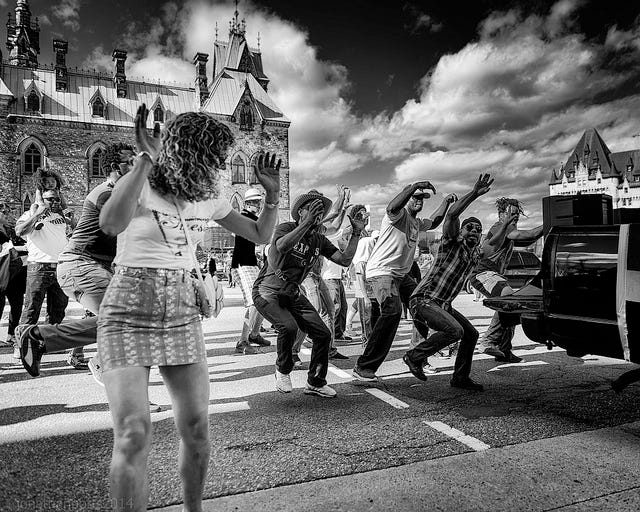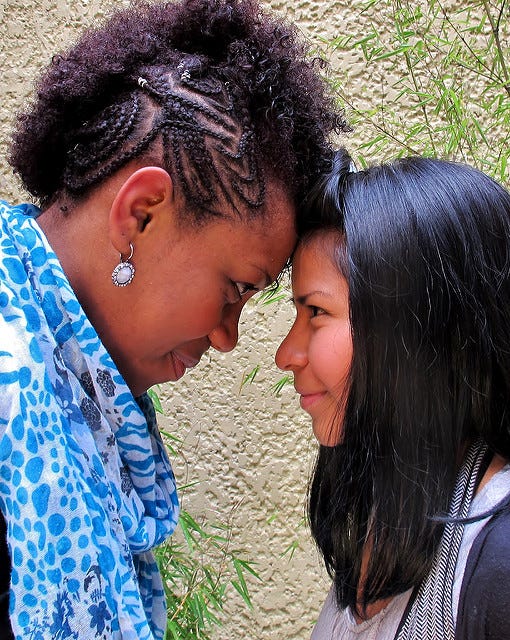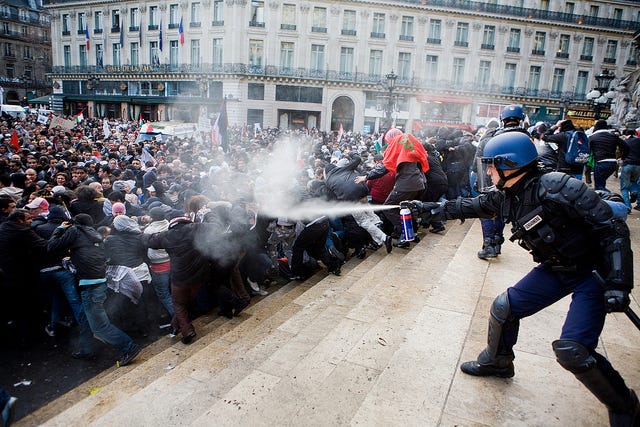Why reframing conflict as creativity is an essential skill for changemakers

We have a laptop that sits on our kitchen table for our children to use. When the unit first became available, the kids would take turns. Slowly, my youngest son began to use the computer more than the others, loading preferences and passwords and special applications. A subtle but steady shift occurred; his siblings began to feel that the computer was his, rather than communal property.
One day my daughter sat down to do some homework on the laptop, prompting this exchange:
Son: “Why are you working on my laptop?”
Daughter: “I need to do some homework and this one has the Word program I need. It’s not yours, anyway.”
Son: “You don’t need to use my laptop, there’s a computer upstairs that has Word.”
Daughter: “I’m allowed to use this one. You can’t stop me!”
Parental intervention yielded a negotiated settlement. Yes, the children had to share the laptop and work together.
This small skirmish serves as an almost boundless metaphor for so many problems in the world today. On one hand, we have the possibility of cooperation, collaboration and coordinated activity. On the other, we have a quest for power, for dominion over resources so that we can proceed without regard to the interests of others.
The Dance of Human Conflict

Life always and necessarily entails conflict.
What do I mean when I use the word “conflict”? As simply and broadly as possible, to be directly engaged in conflict involves any situation in which we encounter resistance to our desires or viewpoints from people or forces beyond our control. You want to do something and behold: Something or someone is blocking your path. You believe something to be true, and look: Here is a person who thinks your belief is false.
Two Kinds of Conflict: Creative vs. Territorial

The most exciting and meaningful conflicts in our lives are fundamentally creative, which occurs when we work with others to create something that we individually or collectively desire to bring into existence. Because each person has a different view of what should be created, conflict entails exploring with one another the true meaning of our shared values. (Imagine my children asking: “How can we share this computer, maybe even work together on it to learn and create?”) Our collaborations can thus become a shared quest giving our lives a profound sense of creative meaning and purpose. Working through creative conflicts can deepen relationships and create powerful opportunities for learning and innovation.
Unfortunately, conflict is often not creative in this way. Instead, it can be territorial, focused only on the acquisition or defense of power.
Territorial conflict is not immediately about constructively shaping and bringing forth what is beautiful, good and just. Instead, it involves enhancing our power as individuals or in groups competing against one another for what we perceive to be scarce resources.

Territorial conflicts are about dominion and control: offensive or defensive. Offensive conflicts occur when we seek to seize control by force where someone else currently has or shares control. (Think of my son: “That’s mycomputer.”) Defensive conflicts occur when we seek to preserve our own control against someone else’s efforts to dominate us. (Think of my daughter: “Hey, that’s not your computer.”) When we fear losing our power, we may engage in territorial conflicts as a strategy to preserve our autonomy. People who engage in territorial conflicts often seek power for its own sake, rather than for what they can create with it.
The experience of territorial conflict may cause us to think about other human beings not as collaborative creators, but rather as obstacles, property or instruments to gain power or preserve it. In this sense, territorial conflicts can cause us to dehumanize and objectify others.
The pursuit of power as an end in itself diminishes those engaged in the pursuit. The loving relationships that we create with others give our lives the greatest meaning and pleasure. The pursuit of power through territorial conflicts reduces the number and quality of the loving relationships that surround us.
As we think about conflict, we should welcome and not fear creative conflicts. While we need not seek creative conflict for its own sake, we nevertheless should embrace the inquiry, learning and deepening of relationships that we discover through exploring and working through creative conflicts as they occur naturally within our collaborations.
When we experience territorial conflicts, however, we should stop and ask ourselves: Am I truly threatened in this conflict as a creator? Do I need the power that I am seeking to take or defend, or is there another way? Can I transform this territorial conflict into a creative conflict by collaborating with those seeking or defending their power at this moment? Can I invite my opponent to join with me in a creative relationship and process?
Becoming Better at Conflict

Creative conflict feels different than territorial conflict. It is satisfying, productive and positive. It allows for new learning. It strengthens our relationships. In contrast, territorial conflict is not pleasant. It exposes us to risk and danger; it causes us to become either the oppressor or the oppressed. It makes us mean and selfish rather than loving and generous. What are some simple strategies to reframe territorial conflicts as creative?
First, ask yourself: What are you trying to create? If the answer is power, influence, recognition, control or values similar to these, it is time to go deeper. Power for what? Influence for what? What do you want to be recognized for? If you want control, how do you want to use that control? To what end? Serving what purpose?
Answering these questions will re-establish creativity directed outward towards others as a dominant value within your consciousness.
My book on changemaking, leadership and creativity further explores these topics: Genership 1.0: Beyond Leadership Toward Liberating the Creative Soul.
Bio: David Castro is the President and CEO of Institute for Leadership Education Advancement and Development. You can learn more about their work here.